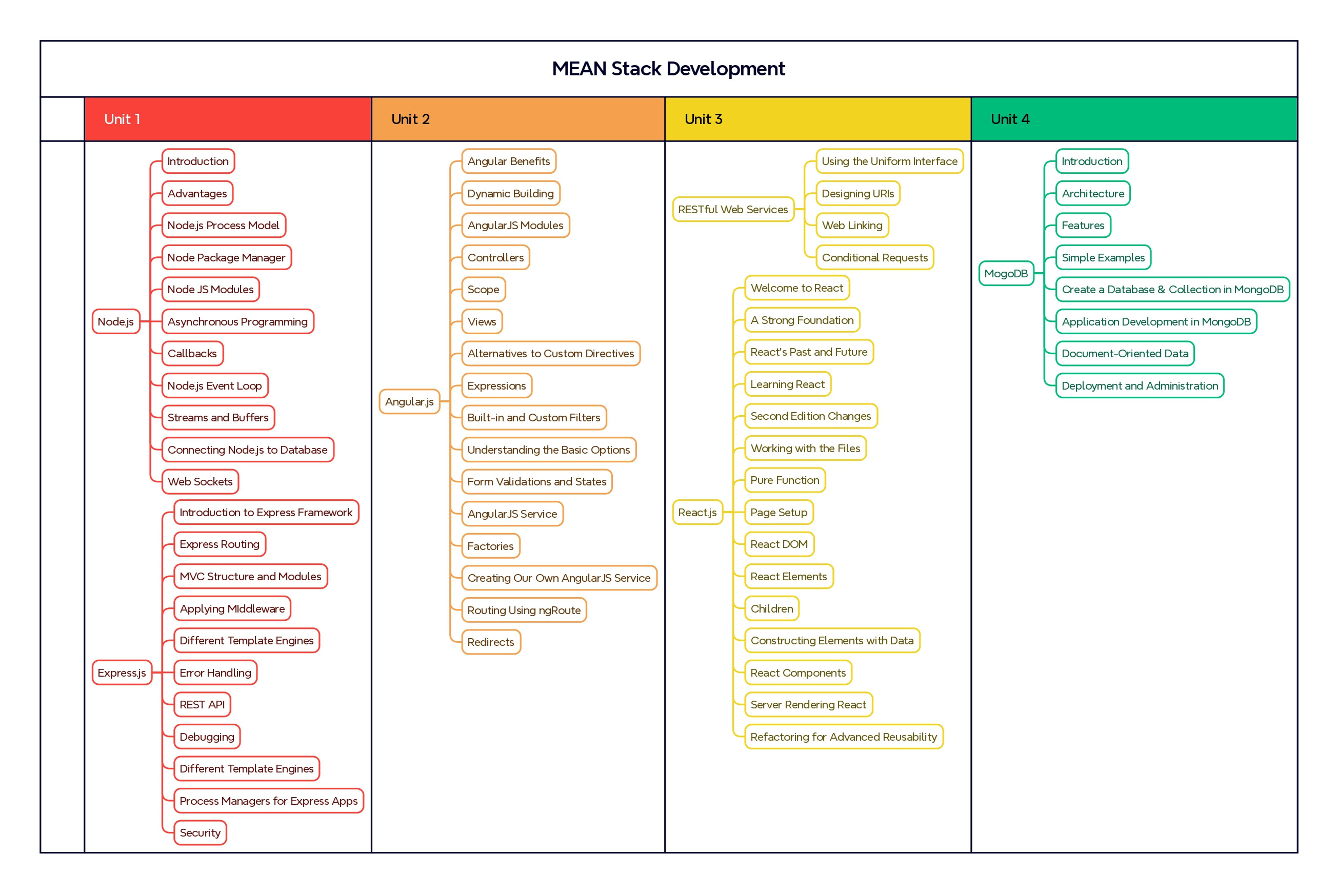
- Unit I
- Node.js
- Introduction
- Advantages
- Node.js Process Model
- Node Package Manager
- Node JS Modules
- Asynchronous Programming
- Callbacks
- Node.js Event Loop
- Streams and Buffers
- Connecting Node.js to Database
- Web Sockets
- Express.js
- Introduction to Express Framework
- Express Routing
- MVC Structure and Modules
- Applying Middleware
- Different Template Engines
- Error Handling
- REST API
- Debugging
- Different Template Engines
- Process Managers for Express Apps
- Security
- Unit II
- Angular.js
- Angular Benefits
- Dynamic Binding
- AngularJS Modules
- Controllers
- Scope
- Views
- Alternatives to Custom Directives
- Expressions
- Built-in and Custom Filters
- Understanding the Basic Options
- Form Validation and States
- AngularJS Service
- Factories
- Creating Our Own AngularJS Service
- Routing Using ngRoute
- Redirects
- Unit III
- RESTful Web Services
- Using the Uniform Interface
- Designing URIs
- Web Linking
- Conditional Requests
- React.js
- Welcome to React
- A Strong Foundation
- React's Past and Future
- Learning React
- Second Edition Changes
- Working with the Files
- Pure Function
- Page Setup
- React DOM
- React Elements
- Children
- Constructing Elements with Data
- React Components
- Server Rendering React
- Refactoring for Advanced Reusability
- Unit IV
- MongoDB
- Introduction
- Architecture
- Features
- Simple Examples
- Create a Database & Collection in MongoDB
- Application Development in MongoDB
- Document-Oriented Data
- Deployment and Administration
